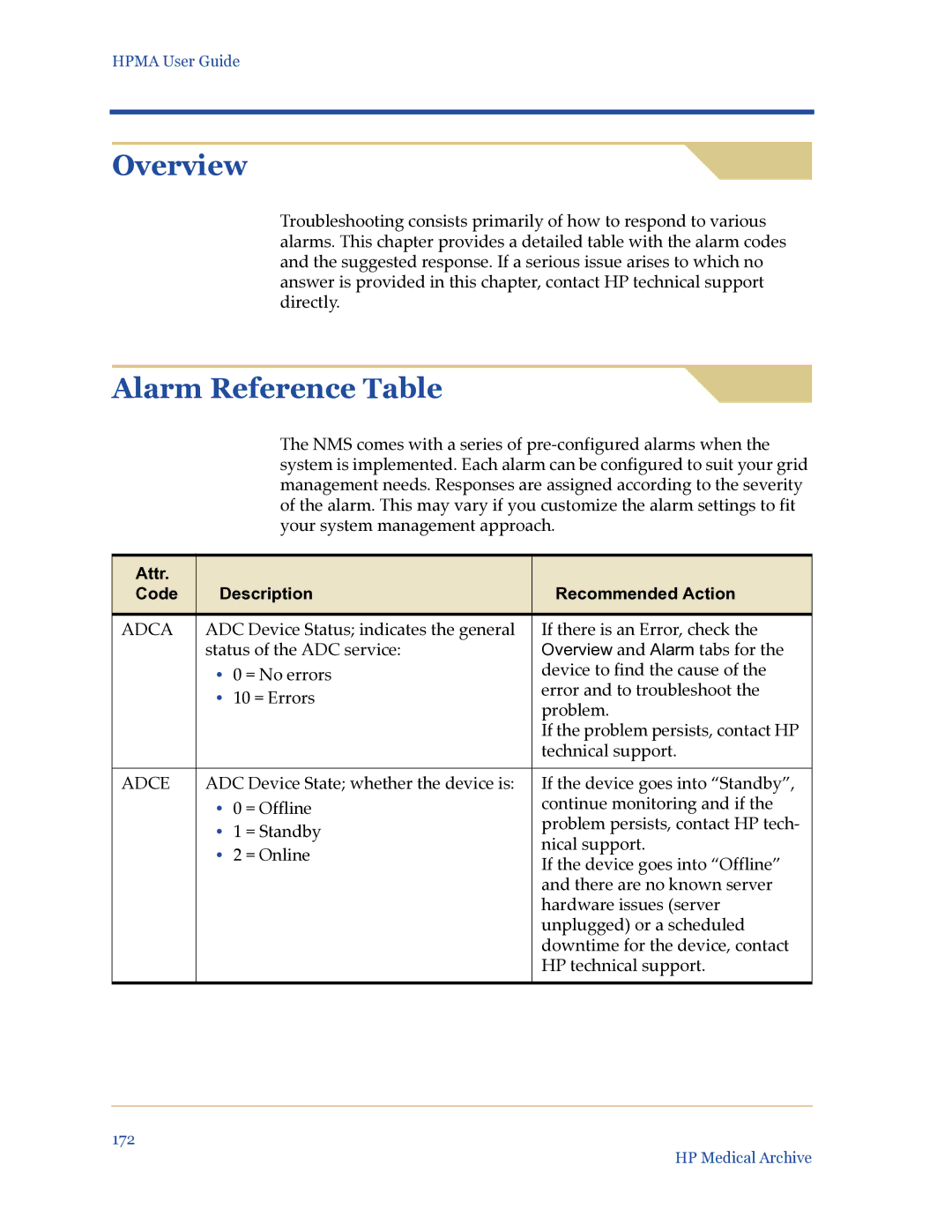
HPMA User Guide
Overview
Troubleshooting consists primarily of how to respond to various alarms. This chapter provides a detailed table with the alarm codes and the suggested response. If a serious issue arises to which no answer is provided in this chapter, contact HP technical support directly.
Alarm Reference Table
The NMS comes with a series of
Attr. | Description | Recommended Action | |
Code | |||
|
|
| |
ADCA | ADC Device Status; indicates the general | If there is an Error, check the | |
| status of the ADC service: | Overview and Alarm tabs for the | |
| • 0 = No errors | device to find the cause of the | |
| • | 10 = Errors | error and to troubleshoot the |
| problem. | ||
|
|
| |
|
|
| If the problem persists, contact HP |
|
|
| technical support. |
|
|
| |
ADCE | ADC Device State; whether the device is: | If the device goes into “Standby”, | |
| • | 0 = Offline | continue monitoring and if the |
| • | 1 = Standby | problem persists, contact HP tech- |
| nical support. | ||
| • | 2 = Online | |
| If the device goes into “Offline” | ||
|
|
| |
|
|
| and there are no known server |
|
|
| hardware issues (server |
|
|
| unplugged) or a scheduled |
|
|
| downtime for the device, contact |
|
|
| HP technical support. |
|
|
|
|
172
HP Medical Archive
